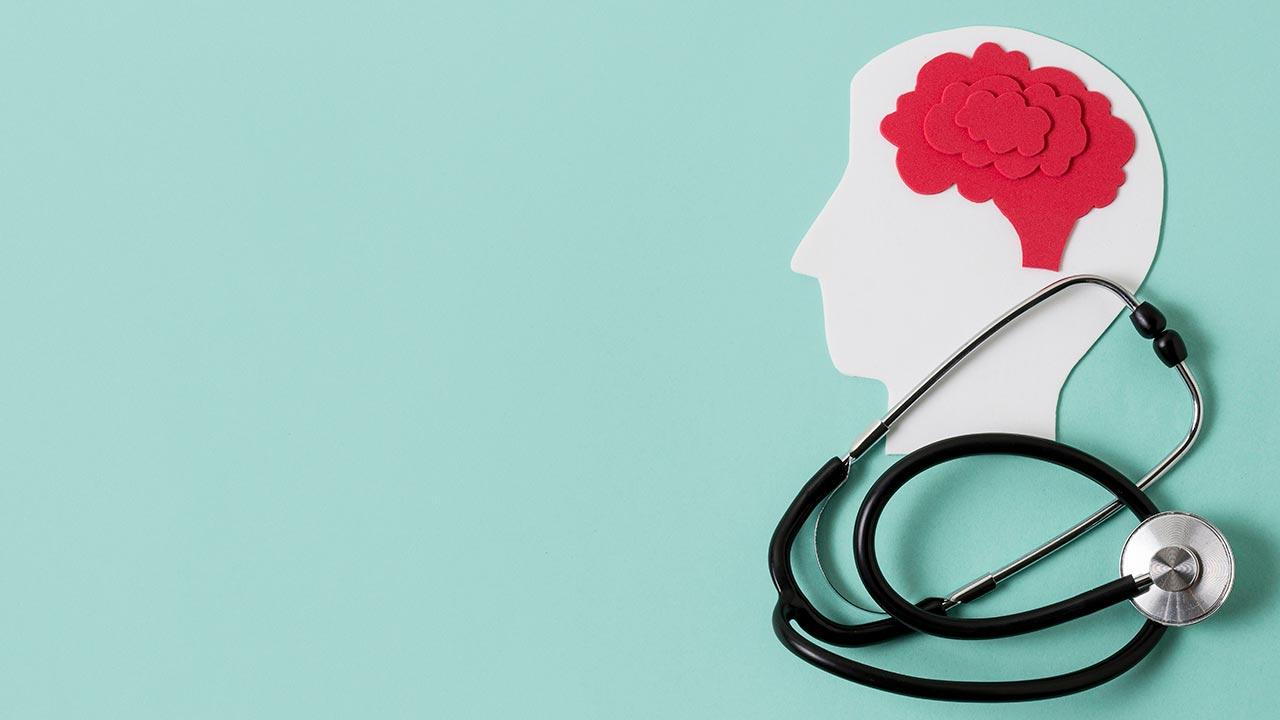Tips to Support Brain Health
Summarize

People often give their brain little thought until they experience a headache or have trouble concentrating. Yet, like any organ in the human body, the brain needs to stay healthy to function properly. Developing healthy brain habits is crucial to maintaining the quality of life because the brain is involved in everything the body experiences and does. It is also subject to decline due to the normal aging process, which can lead to cognitive and physical challenges. Developing a brain-boosting lifestyle that includes consuming foods for brain health and getting regular, quality sleep to boost mental wellness can improve cognitive functioning and slow brain aging.
The Body’s Headquarters
The brain is an organ in the nervous system. It is composed of billions of nerve cells that send and receive chemical and electrical signals along a complex network of nerves connecting the brain to the body. It is like a central management system controlling bodily functions, emotions, thoughts and memories.
There is still a lot to learn about this organ of nervous tissue that commands responses, manages movement and enables communication, language and the senses. However, given its importance, keeping your brain healthy is crucial to maintaining good health and mental well-being. A healthy brain supports the ability to do the following.
→ Learn and think clearly
→ Make good decisions
→ Interact with the surrounding environment
→ Maintain a stable mood
→ Manage mental discomfort
→ Maintain balance and coordination
→ Control movements
→ Regulate automatic body functions, including breathing and sleep cycles
→ Form relationships
→ Adapt throughout life and different environments
A healthy brain is essential to enjoying life as well as managing it.
As aging naturally leads to some decline in cognitive functioning, adopting healthy brain habits as early as possible in adulthood is the best strategy for minimizing the risk of cognitive decline.
This proactive approach empowers you to take control of your cognitive health and enjoy a fulfilling life.
What is Brain Health?
Brain health is more than how well you process information. The World Health Organization defines brain health by how it is functioning in domains that include cognitive, social, emotional, sensory, and motor. The state of these domains determines the ability of a person to realize their full potential throughout their life. The brain’s functions can be summarized in three major categories.
- Interpretation of senses and movement control
- Maintenance of mental, cognitive and emotional processes
- Maintenance of normal behavior and social learning and understanding
Brain health concerns maintaining optimal brain integrity and functioning at every age and in every category.

Tips to Support Brain Health
Everyone should learn how to support brain health. You can improve brain function by adopting the following brain-healthy lifestyle tips for cognitive health.
1. Follow a brain health diet
The National Institutes of Health’s research has linked the MIND diet to improved brain health and a 4% reduced risk of cognitive decline due to aging. MIND is the acronym for Mediterranean-DASH Intervention for Neurogenerative Delay. The MIND diet consists of eating leafy greens and other vegetables, beans, nuts, whole grains, and at least one fish serving each week. Limited foods include red meat, cheese, fried foods and sweets. Also, berries are the primary recommended fruit.
Additional research has found a relationship between gut health and brain function. A holistic diet approach for brain health includes consuming dietary fiber and probiotics for maintaining a healthy gut.

2. Get quality sleep
Sleep and brain health are connected in a complex and surprising manner. While you sleep, the brain is very active, helping to restore the body. Researchers have shown that sleep disturbances affect brain health and increase the risk of developing neurodegenerative disorders. Recent research has also discovered that decreases in deep sleep due to aging lead to an accumulation of beta amyloid. During quality sleep, brain cells flush fluid into, through and out of the brain, cleaning brain metabolic waste.
3. Exercise regularly
Staying active supports brain health. Making time for regular exercise can promote cardiovascular health which improves blood flow to the brain, improve sleep and mood, reduce the risk of developing dementia, improve thinking memory and focus, reduce the brain’s release of cortisol and other reactive hormones, increase the cerebral cortex thickness and improve the integrity of the nerve fibers connecting the various brain parts. Exercise also increases the brain’s ability to form new neural connections. The best exercises for brain health are aerobic because aerobic exercises contribute to a healthy cardiovascular system that feeds nutrients to the brain.
4. Take supplements
Nutritional supplements may support cognitive health. They include vitamins, minerals, carotenoids, antioxidants, omega-3s, and dietary polyphenols. Vitamins B, C, D and E support neurotransmitter development and help protect against neuronal damage. Minerals like iron, magnesium and selenium may protect against cognitive decline. Dietary polyphenol supplements are products that contain concentrated plant compounds that are known to have antioxidant properties.

5. Maintain a healthy heart
The medical community agrees that you will have a good brain if you have a good heart. The heart and brain are interdependent. The heart delivers oxygen and nutrients to the brain, and the brain provides autonomic nervous system control to the heart, creating a synergistic process. The steps you take to maintain a healthy heart also maintain a healthy brain.
Controlling your blood pressure is vital to brain health. High blood pressure leads to a higher risk of experiencing a stroke. In fact, 54% of strokes worldwide are associated with high blood pressure.
6. Maintain a healthy lifestyle
Your lifestyle impacts brain health. It is not just about what you eat or how much you exercise, but also about mental stimulation, social interactions, and chronic disease management. By making conscious choices in these areas, you can take control of your brain health and overall well-being. Also, it is important not to smoke and to avoid drinking alcohol in excess.
There is also some research indicating that doing a variety of puzzle types helps the brain form new synapses, the connections between brain cells, and may help prevent brain diseases from developing. You stimulate different parts of the brain by doing various puzzles like jigsaw and word puzzles, Wordle, card-matching games, etc.
FAQs
What foods improve brain function the most?
The best foods to improve brain function are the same foods that protect the cardiovascular system. They include leafy green vegetables, fatty fish with high amounts of omega-3 fatty acids, berries like strawberries and blueberries and nuts, especially walnuts. The MIND diet mentioned earlier contains all these food types.
How does exercise benefit the brain?
Regular physical activity can reduce the risk of the brain experiencing cognitive decline due to aging. Exercise has also been shown to improve working memory by prompting the release of neurotransmitters in the brain, benefit mood and mental health and lead to the release of neuroprotective hormones from muscles, like irisin, that travel to the brain. When any signaling molecules reach the brain, hormones are released, like brain-derived neurotrophic factors (B.D.N.F.) which are essential for creating new synapses between neurons.
Can brain health be improved at any age?
Brain health can be improved at any age by remaining active, eating the MIND diet, staying socially engaged, improving the cardiovascular system and getting quality sleep. However, these actions may not always reverse brain issues like memory lapses or reduced cognitive functioning. Instead, they can prevent further brain health decline. A lot depends on the cause of the brain health issues and the extent of the condition. Mild Cognitive Impairment (MC) is a condition in which you experience memory or thinking problems somewhat more than the usual changes expected with age but not severe enough to interfere with daily activities. A healthy lifestyle may improve MCI.
How can supplements help with brain health?
Research has shown that vitamins B, C, D and E support brain health by promoting neurotransmitter synthesis, protecting against neuronal damage and supporting mood regulation. Minerals protecting against cognitive decline include iron (oxygen transport), magnesium (neurotransmission), zinc (neuroprotection), selenium (antioxidant) and copper (energy production).
Carotenoids may also support brain health because they act as antioxidants. Studies have suggested that combining carotenoids with other supplements with antioxidant properties, like vitamins E and zinc, may have a more significant impact on cognitive function.
Take Care of Your Brain
Notice that the tips for cognitive health are the same for maintaining good health. Like your general health, your brain depends on adhering to a healthy diet, regular physical activity that includes aerobic exercises, 7-8 hours of sleep, supplementation as needed and a balanced lifestyle that includes managing stress and social activities. Anything good for your wellness is good for your brain health. Cognitive decline is common as people age, but it is becoming more apparent with each study on brain health that you can significantly slow down the process and minimize the impacts by living a brain-boosting lifestyle. The earlier in life you begin protecting your brain, the better the outcomes over the years.
Sources
- https://www.ncbi.nlm.nih.gov/books/NBK551718/
- https://pubmed.ncbi.nlm.nih.gov/35777091
- https://pmc.ncbi.nlm.nih.gov/articles/PMC10826122/
- https://www.bmj.com/content/371/bmj.m3683
- https://newsinhealth.nih.gov/2024/12/healthy-eating-linked-better-brain-health
- https://pubmed.ncbi.nlm.nih.gov/37050953/
- https://www.americanbrainfoundation.org/why-sleep-matters-for-brain-health/
- https://medicine.washu.edu/news/neurons-help-flush-waste-out-of-brain-during-sleep/
- https://health.clevelandclinic.org/exercise-and-brain-health
- https://pmc.ncbi.nlm.nih.gov/articles/PMC10746024/#sec6-nutrients-15-05116
- https://www.ahajournals.org/doi/10.1161/STR.0000000000000476
- https://pmc.ncbi.nlm.nih.gov/articles/PMC3838588/
- https://beyond.ubc.ca/wordle-and-crossword-puzzles-can-train-your-brain/
- https://www.health.harvard.edu/healthbeat/foods-linked-to-better-brainpower
- https://www.cdc.gov/physical-activity/features/boost-brain-health.html
- https://www.frontiersin.org/journals/neuroscience/articles/10.3389/fnins.2018.00052/full
- https://pmc.ncbi.nlm.nih.gov/articles/PMC10605009/#sec5-brainsci-13-01468
Share this post
